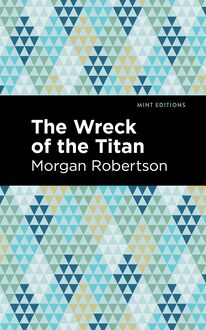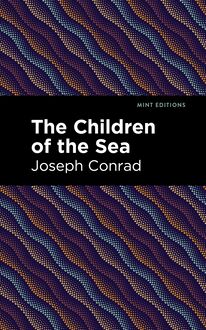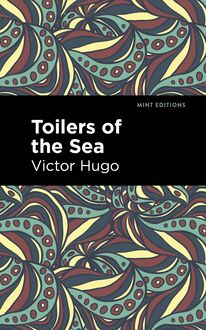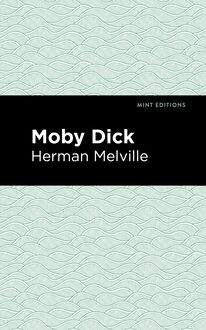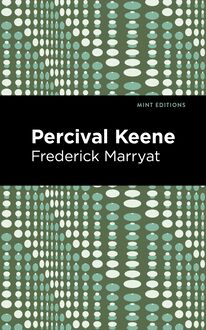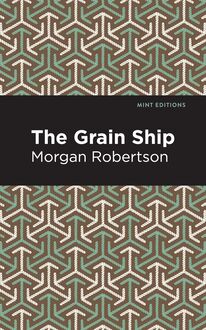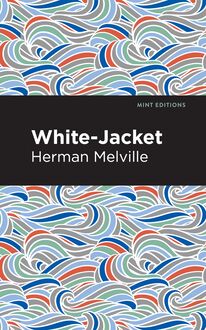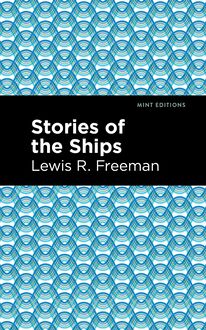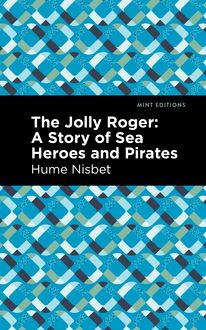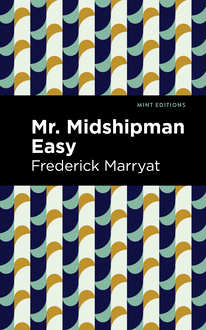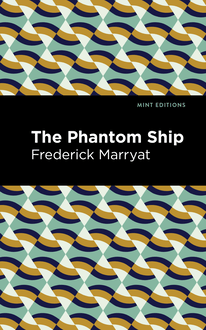-
 Univers
Univers
-
 Ebooks
Ebooks
-
 Livres audio
Livres audio
-
 Presse
Presse
-
 Podcasts
Podcasts
-
 BD
BD
-
 Documents
Documents
-
- Cours
- Révisions
- Ressources pédagogiques
- Sciences de l’éducation
- Manuels scolaires
- Langues
- Travaux de classe
- Annales de BEP
- Etudes supérieures
- Maternelle et primaire
- Fiches de lecture
- Orientation scolaire
- Méthodologie
- Corrigés de devoir
- Annales d’examens et concours
- Annales du bac
- Annales du brevet
- Rapports de stage
La lecture à portée de main
Vous pourrez modifier la taille du texte de cet ouvrage
Découvre YouScribe en t'inscrivant gratuitement
Je m'inscrisDécouvre YouScribe en t'inscrivant gratuitement
Je m'inscrisEn savoir plus
Vous pourrez modifier la taille du texte de cet ouvrage
En savoir plus

Description
The Children of the Sea (1897) is a novella by Joseph Conrad. The story originally appeared with a title featuring a racial slur, a subject of controversy even before Chinua Achebe published his monumental essay “An Image of Africa: Racism in Conrad’s ‘Heart of Darkness.’” Often considered the first major work of Conrad’s career, The Children of the Sea is often read as an allegory on the dangers of individualism and the moral shortcomings of modern humanity. The novella is also notable for its preface, in which Conrad provides a brief-yet-stirring manifesto on the art of literature: “A work that aspires, however humbly, to the condition of art should carry its justification in every line.” On board the Narcissus, a merchant ship bound from Bombay to London, a West Indian man by the name of James Wait lies below deck suffering from tuberculosis. Because of the sudden onset of his illness, some of the sailors believe he is faking his condition in order to avoid work. When the ship capsizes in a storm near the Cape of Good Hope, a group of brave men goes below deck to rescue Wait from near-certain death. As the weather improves enough for the Narcissus to be righted, suspicion regarding the Afro-Caribbean man’s health threatens a mutiny among the crew. With a beautifully designed cover and professionally typeset manuscript, this edition of Joseph Conrad’s The Children of the Sea is a classic work of British literature reimagined for modern readers.
Sujets
Informations
| Publié par | Mint Editions |
| Date de parution | 12 octobre 2021 |
| Nombre de lectures | 0 |
| EAN13 | 9781513217222 |
| Langue | English |
| Poids de l'ouvrage | 3 Mo |
Informations légales : prix de location à la page 0,0400€. Cette information est donnée uniquement à titre indicatif conformément à la législation en vigueur.
Extrait
The Children of the Sea
Joseph Conrad
The Children of the Sea was first published in 1897.
This edition published by Mint Editions 2021.
ISBN 9781513218229 | E-ISBN 9781513217222
Published by Mint Editions®
minteditionbooks.com
Publishing Director: Jennifer Newens
Design & Production: Rachel Lopez Metzger
Project Manager: Micaela Clark
Typesetting: Westchester Publishing Services
C ONTENTS N OTE F ROM THE P UBLISHER P REFACE I II III IV V
N OTE F ROM THE P UBLISHER
D espite the literary significance of this work—and the importance of this novella to the career of Joseph Conrad—we would be remiss if we did not acknowledge that it was first published under the title, The Nigger of the “Narcissus . ”
Our edition of this book will present this work as it was originally written, because to do anything less would imply that it is acceptable to excuse or deny that the fact that this slur was, and is currently used, against the Black community.
Mint Editions
Berkeley, CA
P REFACE
A work that aspires, however humbly, to the condition of art should carry its justification in every line. And art itself may be defined as a single-minded attempt to render the highest kind of justice to the visible universe, by bringing to light the truth, manifold and one, underlying its every aspect. It is an attempt to find in its forms, in its colours, in its light, in its shadows, in the aspects of matter and in the facts of life what of each is fundamental, what is enduring and essential—their one illuminating and convincing quality—the very truth of their existence. The artist, then, like the thinker or the scientist, seeks the truth and makes his appeal. Impressed by the aspect of the world the thinker plunges into ideas, the scientist into facts—whence, presently, emerging they make their appeal to those qualities of our being that fit us best for the hazardous enterprise of living. They speak authoritatively to our common-sense, to our intelligence, to our desire of peace or to our desire of unrest; not seldom to our prejudices, sometimes to our fears, often to our egoism—but always to our credulity. And their words are heard with reverence, for their concern is with weighty matters: with the cultivation of our minds and the proper care of our bodies, with the attainment of our ambitions, with the perfection of the means and the glorification of our precious aims.
It is otherwise with the artist.
Confronted by the same enigmatical spectacle the artist descends within himself, and in that lonely region of stress and strife, if he be deserving and fortunate, he finds the terms of his appeal. His appeal is made to our less obvious capacities: to that part of our nature which, because of the warlike conditions of existence, is necessarily kept out of sight within the more resisting and hard qualities—like the vulnerable body within a steel armour. His appeal is less loud, more profound, less distinct, more stirring—and sooner forgotten. Yet its effect endures forever. The changing wisdom of successive generations discards ideas, questions facts, demolishes theories. But the artist appeals to that part of our being which is not dependent on wisdom; to that in us which is a gift and not an acquisition—and, therefore, more permanently enduring. He speaks to our capacity for delight and wonder, to the sense of mystery surrounding our lives; to our sense of pity, and beauty, and pain; to the latent feeling of fellowship with all creation—and to the subtle but invincible conviction of solidarity that knits together the loneliness of innumerable hearts, to the solidarity in dreams, in joy, in sorrow, in aspirations, in illusions, in hope, in fear, which binds men to each other, which binds together all humanity—the dead to the living and the living to the unborn.
It is only some such train of thought, or rather of feeling, that can in a measure explain the aim of the attempt, made in the tale which follows, to present an unrestful episode in the obscure lives of a few individuals out of all the disregarded multitude of the bewildered, the simple and the voiceless. For, if any part of truth dwells in the belief confessed above, it becomes evident that there is not a place of splendour or a dark corner of the earth that does not deserve, if only a passing glance of wonder and pity. The motive then, may be held to justify the matter of the work; but this preface, which is simply an avowal of endeavour, cannot end here—for the avowal is not yet complete. Fiction—if it at all aspires to be art—appeals to temperament. And in truth it must be, like painting, like music, like all art, the appeal of one temperament to all the other innumerable temperaments whose subtle and resistless power endows passing events with their true meaning, and creates the moral, the emotional atmosphere of the place and time. Such an appeal to be effective must be an impression conveyed through the senses; and, in fact, it cannot be made in any other way, because temperament, whether individual or collective, is not amenable to persuasion. All art, therefore, appeals primarily to the senses, and the artistic aim when expressing itself in written words must also make its appeal through the senses, if its highest desire is to reach the secret spring of responsive emotions. It must strenuously aspire to the plasticity of sculpture, to the colour of painting, and to the magic suggestiveness of music—which is the art of arts. And it is only through complete, unswerving devotion to the perfect blending of form and substance; it is only through an unremitting never-discouraged care for the shape and ring of sentences that an approach can be made to plasticity, to colour, and that the light of magic suggestiveness may be brought to play for an evanescent instant over the commonplace surface of words: of the old, old words, worn thin, defaced by ages of careless usage.
The sincere endeavour to accomplish that creative task, to go as far on that road as his strength will carry him, to go undeterred by faltering, weariness or reproach, is the only valid justification for the worker in prose. And if his conscience is clear, his answer to those who in the fulness of a wisdom which looks for immediate profit, demand specifically to be edified, consoled, amused; who demand to be promptly improved, or encouraged, or frightened, or shocked, or charmed, must run thus:—My task which I am trying to achieve is, by the power of the written word to make you hear, to make you feel—it is, before all, to make you see. That—and no more, and it is everything. If I succeed, you shall find there according to your deserts: encouragement, consolation, fear, charm—all you demand—and, perhaps, also that glimpse of truth for which you have forgotten to ask. To snatch in a moment of courage, from the remorseless rush of time, a passing phase of life, is only the beginning of the task. The task approached in tenderness and faith is to hold up unquestioningly, without choice and without fear, the rescued fragment before all eyes in the light of a sincere mood. It is to show its vibration, its colour, its form; and through its movement, its form, and its colour, reveal the substance of its truth—disclose its inspiring secret: the stress and passion within the core of each convincing moment. In a single-minded attempt of that kind, if one be deserving and fortunate, one may perchance attain to such clearness of sincerity that at last the presented vision of regret or pity, of terror or mirth, shall awaken in the hearts of the beholders that feeling of unavoidable solidarity; of the solidarity in mysterious origin, in toil, in joy, in hope, in uncertain fate, which binds men to each other and all mankind to the visible world. It is evident that he who, rightly or wrongly, holds by the convictions expressed above cannot be faithful to anyone of the temporary formulas of his craft. The enduring part of them—the truth which each only imperfectly veils—should abide with him as the most precious of his possessions, but they all: Realism, Romanticism, Naturalism, even the unofficial sentimentalism (which like the poor, is exceedingly difficult to get rid of), all these gods must, after a short period of fellowship, abandon him—even on the very threshold of the temple—to the stammerings of his conscience and to the outspoken consciousness of the difficulties of his work. In that uneasy solitude the supreme cry of Art for Art itself, loses the exciting ring of its apparent immorality. It sounds far off. It has ceased to be a cry, and is heard only as a whisper, often incomprehensible, but at times and faintly encouraging.
Sometimes, stretched at ease in the shade of a roadside tree, we watch the motions of a labourer in a distant field, and after a time, begin to wonder languidly as to what the fellow may be at. We watch the movements of his body, the waving of his arms, we see him bend down, stand up, hesitate, begin again. It may add to the charm of an idle hour to be told the purpose of his exertions. If we know he is trying to lift a stone, to dig a ditch, to uproot a stump, we look with a more real interest at his efforts; we are disposed to condone the jar of his agitation upon the restfulness of the landscape; and even, if in a brotherly frame of mind, we may bring ourselves to forgive his failure. We understood his object, and, after all, the fellow has tried, and perhaps he had not the strength—and perhaps he had not the knowledge. We forgive, go on our way—and forget.
And so it is with the workman of art. Art is long and life is short, and success is very far off. And thus, doubtful of strength to travel so far, we talk a little about the aim—the aim of art, which, like life itself, is inspiring, difficult—obscured by mists; it is not in the clear logic of a triumphant conclusion; it is not in the unveiling of one of those heartless secrets which are called the
-
 Univers
Univers
-
 Ebooks
Ebooks
-
 Livres audio
Livres audio
-
 Presse
Presse
-
 Podcasts
Podcasts
-
 BD
BD
-
 Documents
Documents
-
Jeunesse
-
Littérature
-
Ressources professionnelles
-
Santé et bien-être
-
Savoirs
-
Education
-
Loisirs et hobbies
-
Art, musique et cinéma
-
Actualité et débat de société
-
Jeunesse
-
Littérature
-
Ressources professionnelles
-
Santé et bien-être
-
Savoirs
-
Education
-
Loisirs et hobbies
-
Art, musique et cinéma
-
Actualité et débat de société
-
Actualités
-
Lifestyle
-
Presse jeunesse
-
Presse professionnelle
-
Pratique
-
Presse sportive
-
Presse internationale
-
Culture & Médias
-
Action et Aventures
-
Science-fiction et Fantasy
-
Société
-
Jeunesse
-
Littérature
-
Ressources professionnelles
-
Santé et bien-être
-
Savoirs
-
Education
-
Loisirs et hobbies
-
Art, musique et cinéma
-
Actualité et débat de société
- Cours
- Révisions
- Ressources pédagogiques
- Sciences de l’éducation
- Manuels scolaires
- Langues
- Travaux de classe
- Annales de BEP
- Etudes supérieures
- Maternelle et primaire
- Fiches de lecture
- Orientation scolaire
- Méthodologie
- Corrigés de devoir
- Annales d’examens et concours
- Annales du bac
- Annales du brevet
- Rapports de stage
